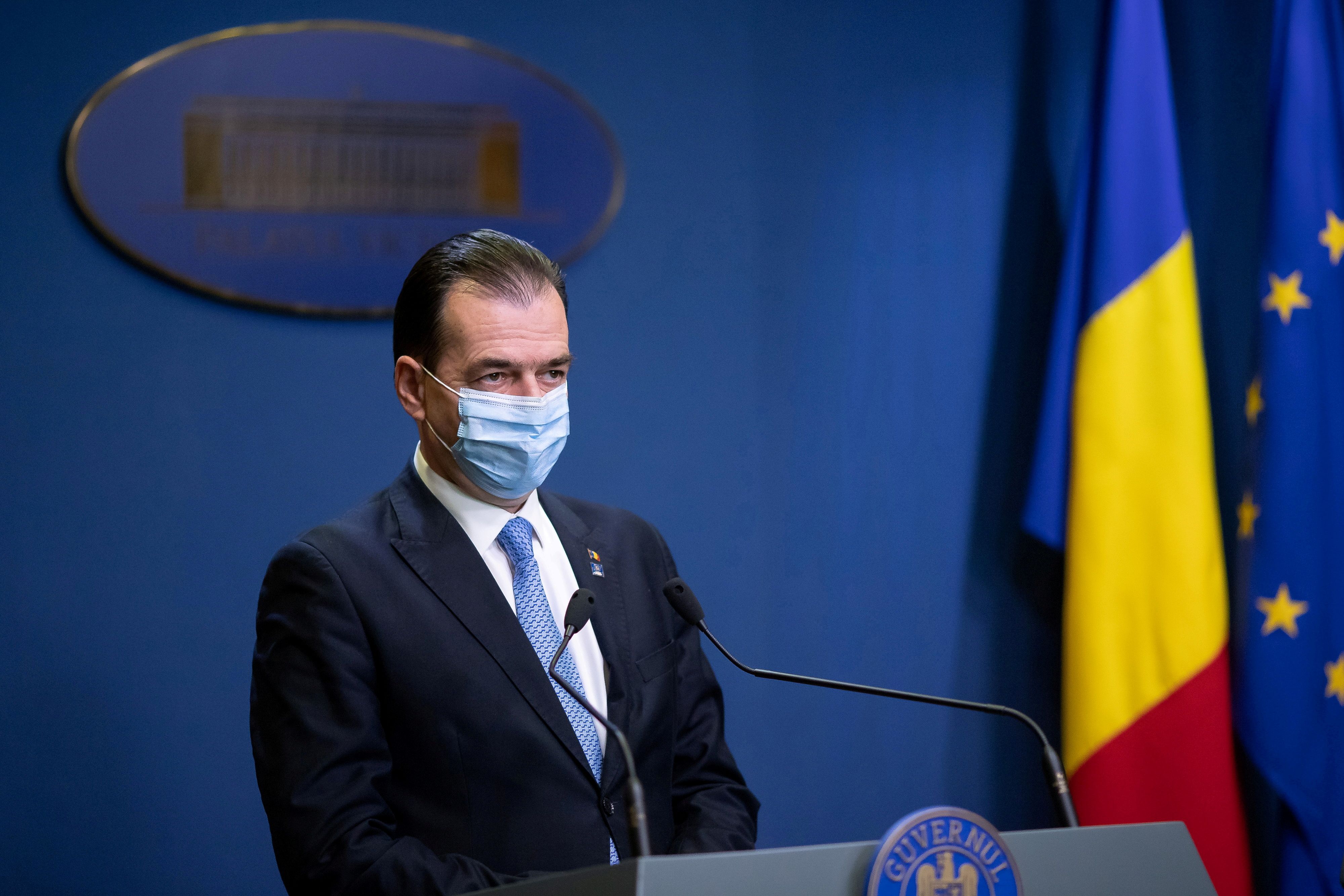Romania’s Prime Minister Resigns after Surprising Results of Parliamentary Elections

Who will form a new government?
Although PSD was second in all polls for a year and a half to December 2020, it won the election with 30% of the votes—about 15 percentage points (p.p.) less than in the 2016 elections. However, it does not have coalition capacity, confirmed by all parliamentary parties. That is why President Klaus Iohannis, who is associated with PNL, has refused to entrust PSD with creating a new government and instead supports the creation of a centre-right coalition headed by PNL, which was announced before the elections. This party won 25% of the votes—5 p.p. more than in 2016. The alliance of the Save Romania Union and the Freedom, Unity and Solidarity Party (USR-PLUS), originating from urban movements and winning 15% of the votes, will join the coalition. Both lists won significantly fewer votes than the polls predicted, therefore they need the Democratic Union of Hungarians (UDMR) and its 6% of votes to form a government. PNL expected the People’s Movement Party (PMP) to be a potential coalition partner, but it did not cross the election threshold.
Who will be the prime minister?
PNL’s poorer-than-expected election result has undermined its chairman, Prime Minister Ludovic Orban, who had intended to head the new government again. Orban took responsibility for the failure and to give the party a clean slate in the coalition talks, he resigned as prime minister on 7 December. The provisional government (up to 45 days) is headed by the defence minister and retired general Nicolae Ciucă. Such a cabinet cannot issue legislative acts. Ciucă has no political background in PNL, but probably Iohannis plans to appoint him as the head of the future government. At the same time, the party rejects the candidacy of the USR-PLUS co-leader Dacian Cioloş, who was prime minister in 2015-2017 and previously a European commissioner for agriculture. The lack of clear candidate for the head of government broadens the potential for internal rivalry in PNL and in the future coalition.
What does the new Alliance for the Unity of Romanians stand for?
The Alliance for the Unity of Romanians (AUR), created in December 2019, got into parliament with almost 9% of the votes, although polls had forecasted slight support. It is an anti-European, anti-immigrant party, with COVID-19 and other science deniers, conservative on moral issues and supporting its view of economic freedom. Its views could be characterised as extreme nationalism, referring to the fascist movement in Romania during World War II. AUR is focused on a confrontation with Romanian Hungarians, as evidenced by the events at the Valea Uzului war cemetery in 2019 and its proposals for banning ethnic parties, mainly focused against the UDMR. It also supports the incorporation of Moldova into Romania. However, this party did not get the majority of votes among Moldovans with Romanian citizenship who want unification.
What changed the electoral support for the parties?
The difference in the results from the polls was caused by the 31% turnout—the lowest in parliamentary elections since 1989. Although turnout has fluctuated around just 40% since the separation of parliamentary and presidential elections in 2008, it was probably reduced by fears of COVID-19. In particular, the city electorate of PNL and USR-PLUS did not turn out, additionally discouraged by the lack of a coherent message from the future coalition partners. This did not affect the disciplined PSD voters, and above all the AUR. The latter also fed off the dissatisfaction of society with the lack of improvement in healthcare promised by the Orban government and fatigue with the pandemic restrictions. AUR campaigned primarily through social media, effectively reaching the diaspora in particular. PNL and USR-PLUS neglected this traditional electorate, yielding AUR first place in Italy and second in Spain and France.
How could these elections affect Romanian foreign policy?
The new coalition will maintain a policy, which is close to Poland’s, of alliance with the U.S. and strengthening the NATO’s Eastern Flank. It will also tighten integration with the EU. It intends to focus on the fight against corruption, which is Romania’s main challenge, as underlined by reports of the European Commission on the implementation of the Cooperation and Verification Mechanism. The participation of UDMR in the government will not result in greater Romanian support for Hungarian actions on the EU forum. The party cooperates with the government of Viktor Orbán in developing the culture of Romanian Hungarians, but is critical of Fidesz’s campaigns involving them before every election in Hungary. On the other hand, nationalist statements by the AUR from a position of a parliamentary party may aggravate relations with Hungary, as well as with Ukraine and Serbia, inhabited by a Romanian minority. They may also hinder constructive support from Romania of Maia Sandu, Moldova’s new pro-European president.


